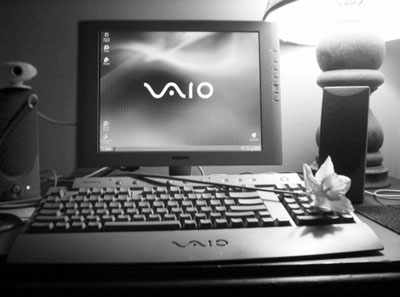All Nonfiction
- Bullying
- Books
- Academic
- Author Interviews
- Celebrity interviews
- College Articles
- College Essays
- Educator of the Year
- Heroes
- Interviews
- Memoir
- Personal Experience
- Sports
- Travel & Culture
All Opinions
- Bullying
- Current Events / Politics
- Discrimination
- Drugs / Alcohol / Smoking
- Entertainment / Celebrities
- Environment
- Love / Relationships
- Movies / Music / TV
- Pop Culture / Trends
- School / College
- Social Issues / Civics
- Spirituality / Religion
- Sports / Hobbies
All Hot Topics
- Bullying
- Community Service
- Environment
- Health
- Letters to the Editor
- Pride & Prejudice
- What Matters
- Back
Summer Guide
- Program Links
- Program Reviews
- Back
College Guide
- College Links
- College Reviews
- College Essays
- College Articles
- Back
"Plug-In Heroine"
Technology use seems to be the new wave of addiction hitting people of all ages. Its extreme use can be compared to the use of drugs, hence its nickname “Plug-In Heroin.” Robert A. Zucker, director Addiction Research at the University of Michigan, said that in order to be addicted to something, individuals must exhibit certain behaviors such as craving, compulsive use, the neglecting of other responsibilities, and withdraw symptoms when the object is not in use. While it may seem absurd to think that someone is addicted to such a small object, truthfully, I know people who adhere to these guidelines if their iPhone or iPod were to be taken away, lost, or forgotten at home.
The next time you are in a crowded public place, look at the people around you. How many of them are on some kind of electronic object? Do not try to count them, because it is guaranteed that if not all of them, some will be. It is hard to find someone who is not glued to the tiny screen, fingers moving at lightning speeds, texting their friends, e-mailing coworkers, or listening to music.
In 2010, a survey was taken and the results show that 85% of people own a cell phone, 59% own of people a desktop computer, 52% of people own a laptop, and 47% of people own an iPod or some other type of MP3 device.
Some people may ask, “What’s wrong with technology use? It’s a way for people to communicate.” While this is true, over-use of technology is not always appropriate in certain settings. Schools are becoming stricter on the use of cell phones, iPods, and other electronic devices in classrooms. Various workplaces have signs hanging on their walls warning employees that “Cell phone use is not permitted” or “Cell phones are prohibited: on the first warning you will be sent home, on the second warning you will be fired.”
Electronics may be a way for people to communicate and stay in touch with each other, but the consequences may outweigh the benefits. People are losing the ability to hold face-to-face to conversations with others. However, it’s hard to avoid electronics in this day and age because everything in turning into an electronic format. Books, originally meant for paper design, are now being transferred to electronic forms. Photo albums, and even yearbooks, can now be viewed via internet. Coloring books and children’s stories can be used on computers and cell phones. With this growing trend, future generations are bound to become even more addicted to technology.
Since the first step to quitting is admitting you have a problem, I will be the first to acknowledge that I am addicted to electronics. From the moment I wake up to the moment I fall asleep, electronic devices are a constant for me. Although, if you were to ask anyone else, you probably would receive the same answer, even if some are reluctant to admit to it.
Is there a cure for electronic addiction? Instead of AA, what about a twelve-step program to wean people away from the devices? Simply turning electronics off for an hour or two a day may help to an extent, but it will not completely exterminate electronic addiction. There only seems to be one cure left, and it may be the hardest: self control.

Similar Articles
JOIN THE DISCUSSION
This article has 0 comments.
